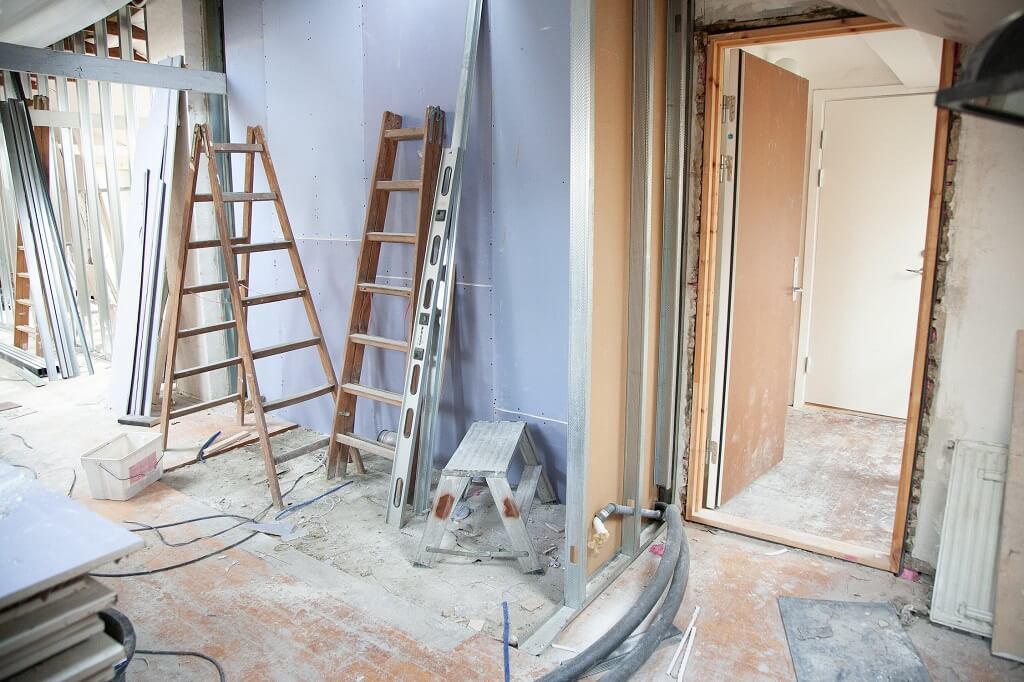
23 Mar Does a Home Equity Loan Require an Appraisal?
Life is full of surprises. Things come up like an unexpected and costly repair or a much needed home improvement project. Sometimes you require extra funds to consolidate your debt. It is times like this that make a home equity line of credit or loan desirable because it can give you the liquidity you need to handle unexpected expenses.
If you have never used this form of financing, this post will help answer a lot of the questions you probably have, including how a home equity loan or line of credit works, how a mortgage broker can help you through this financing process, and other essential information, like whether or not a home equity loan requires an appraisal.

What are Home Equity Loans?
Home equity loans, also known as a second mortgage, are a popular form of borrowing that allows homeowners to access the equity in their homes. Unlike a traditional or primary mortgage, which is used to purchase a home, home equity loans are a type of secured loan that allows homeowners to borrow against the value of their property.
This type of loan can be used for a variety of purposes, such as home renovations, debt consolidation, or education expenses. One question that often arises when considering a home equity loan is whether or not a lender requires a full appraisal. The answer to this question varies depending on the lender and the specific circumstances of the loan. However, in general, most lenders in Canada do require an appraisal before approving a home equity loan.
The Appraisal Process
An appraisal is an evaluation of a property’s value. It is typically conducted by a professional appraiser who is licensed by the province in which the property is located. The appraiser will visit the property and evaluate various factors, such as the size and condition of the home, the quality of the materials used, and the current real estate market conditions. Based on this evaluation, the appraiser will provide an estimate of the property’s value.
The reason why most lenders require a home equity loan appraisal is to ensure that the loan amount does not exceed the value of the property. In other words, the lender wants to make sure that if the borrower defaults on the loan, they will be able to recover the amount owed by selling the property. By getting an appraisal, the lender can determine the current value of the property and make sure that the loan amount is in line with that value.
In addition to helping the lender assess the value of the property, an appraisal can also be beneficial to the borrower. For example, if the appraisal determines that the property has increased in value since it was purchased, the borrower may be able to access a higher loan amount than they would have otherwise been able to.
It is worth noting that not all lenders require an appraisal for a home equity loan. Some lenders may be willing to use other methods by using residential real estate data and broker price opinion or an automated valuation model, to determine the value of the property. However, these methods are generally considered less reliable than a traditional appraisal and may not be accepted by all lenders.
Another factor that may influence whether or not an appraisal is required for a home equity loan is the amount being borrowed. Generally speaking, the larger the loan amount, the more likely an appraisal will be required. This is because larger loan amounts pose a greater risk to the lender, and an appraisal can help mitigate that risk.
Kinds of Home Appraisals
An appraisal helps the lender determine the current value of the property and ensures that the loan amount is in line with that value. While an appraisal may add some additional time and cost to the loan process, it can also be beneficial to both the borrower and lender by providing an accurate value for the property.
The fee for an in person appraisal is covered by the borrower and can range from a few hundred to over a thousand dollars.
- Many lenders require a full appraisal for a home equity loan, but some may allow alternatives like a walk through appraisal, hybrid appraisal, desktop appraisal or a drive-by appraisal.
- Some lenders waive full appraisals in certain situations, such as when a loan falls below a set dollar amount or if an appraisal was recently done. In such cases, they can look at comparable properties.
- A home equity line of credit (HELOC) and a cash-out refinance loan are also options for potentially avoiding a full appraisal.
Difference Between a Home Equity Line of Credit and a Cash-out Refinance Loan
Two options that may allow you to avoid a full appraisal are a home equity line of credit (HELOC) and a cash out refinance loan.
Home Equity Line of Credit (HELOC)
A HELOC is a type of revolving credit that allows you to borrow against the equity in your home, up to a certain limit, and repay it over time. The amount you can borrow is based on your home’s value and your credit score.
The lender may use an automated valuation model (AVM) or a drive-by appraisal to determine your home’s value, rather than a full appraisal. This can save time and money compared to a traditional appraisal. This option is flexible since you can borrow and repay money as needed. HELOCs are often offered with variable interest rates.
Unlike a home equity loan, a HELOC does not require a lump sum payout. Instead, the homeowner can draw funds as needed, up to a certain limit. HELOCs typically do not require an appraisal, but they do require a credit check and proof of income. The interest rate on a HELOC is usually variable, meaning it can change over time based on market conditions.
Cash Out Refinance Loan
A cash out refinance loan is a new mortgage that replaces your existing mortgage, and allows you to borrow more money than you currently owe on your home.
Similar to a HELOC, a cash-out refinance loan may allow you to avoid a full appraisal by using an AVM or a drive-by appraisal to determine your home’s value. This option has a fixed monthly payment. You still need to provide documentation even if you don’t need a full appraisal, you need a good credit score and sufficient equity in your home. In most cases you can borrow more money at a lower rate than a HELOC.

Ready to Get Started? Contact John Antle
When borrowing money using the equity in your home, it’s important to research your options and consult with a mortgage professional to help you determine the best course of action for your individual needs and goals.
While the exact requirements for a home equity loan in Canada may vary depending on the lender and the specific circumstances of the loan, most lenders do require an appraisal before approving a loan.
If you are considering a home equity loan, it is important to speak with a knowledgeable mortgage broker who can work with you to assess whether a home equity line of credit is right for you and your family.
Navigating the complex world of home financing can be a daunting experience, but it doesn’t have to be. With the right guidance and expertise, you can confidently explore various mortgage options for purchasing a home or tapping into your home’s equity. That’s where John Antle comes in – a seasoned mortgage broker who has excelled at helping clients achieve their financial goals.



Sorry, the comment form is closed at this time.